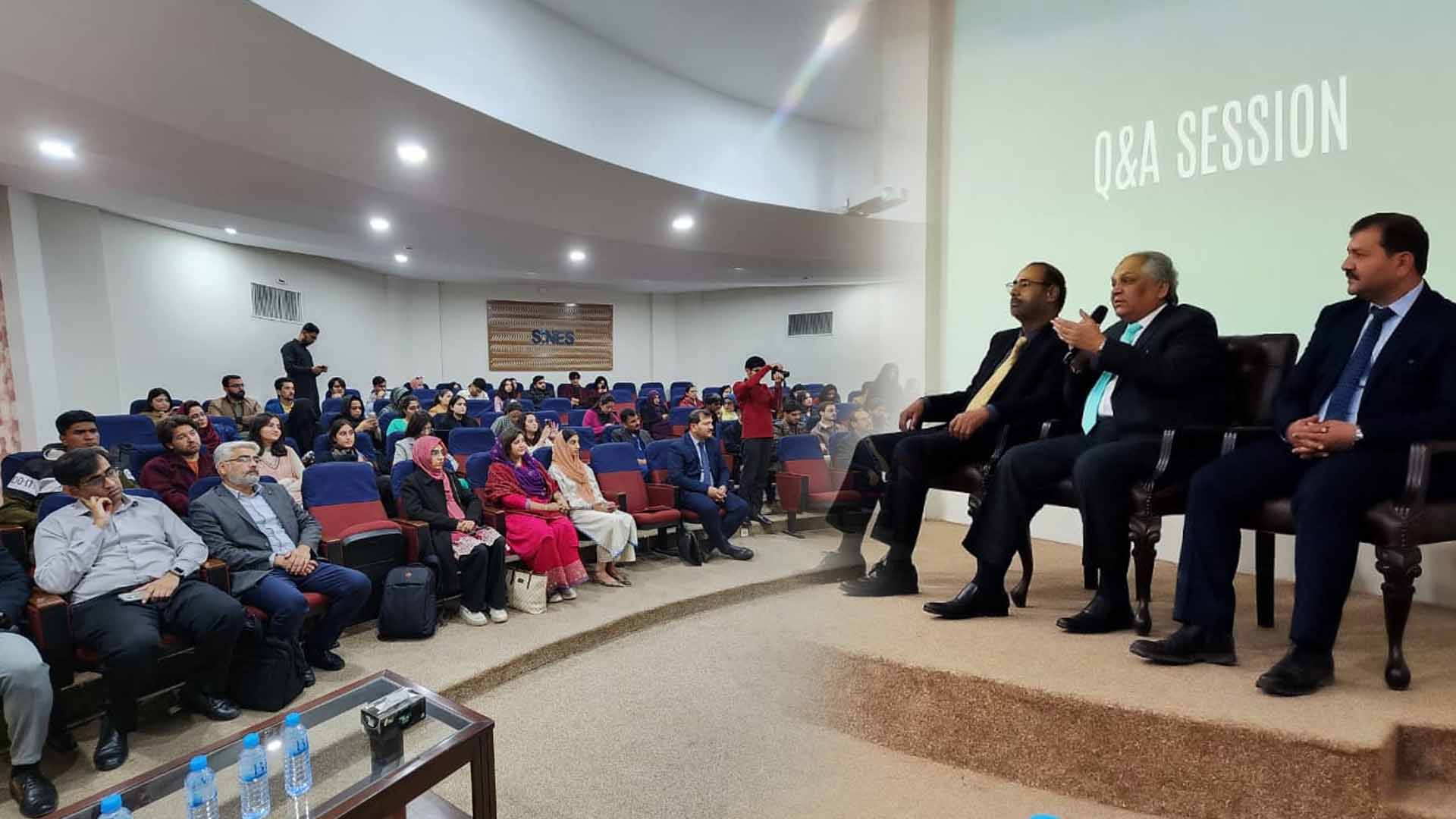Seminar at NUST Explores Significance of Right to Information Laws

ISLAMABAD: The Jinnah School of Public Policy (JSPPL) at NUST, in collaboration with Veritas Associates and Legal Consultants (VALC), organised an awareness seminar on Article 19-A and the Right of Access to Information Act, 2017. A large number of students from various academic programs attended the event.
The seminar featured addresses by Advocate Munir Ahmad, Mr. Shoaib Ahmad Siddiqui, Chief Information Commissioner, Pakistan Information Commission (PIC); and Mr. Ijaz Hassan Awan, Information Commissioner, PIC.
Mr. Hassan Jalil Shah, Principal of the School of Social Sciences and Humanities, NUST, gave the opening remarks, welcomed the participants and thanked the Pakistan Information Commission for its valuable time and presence, as well as Veritas Associates and Legal Consultants for organizing the event. He highlighted the importance of RTI laws for students of governance and public policy and said such seminars play a crucial role in their academic and professional development.
In his presentation, Advocate Munir Ahmad discussed the evolution, background, and global development of Right to Information (RTI) laws, along with their progression in Pakistan. He highlighted case studies and notable orders issued by the Pakistan Information Commission, which have enabled citizens to obtain public records from government bodies by effectively exercising their right to information.
Chief Information Commissioner Mr. Shoaib Ahmad Siddiqui, while speaking on the inclusion of the right to access information through the 10th Amendment to the Constitution of Pakistan, said that governments operate through taxpayers’ money, and citizens must understand how decisions are made and how public funds are spent. He urged students to read the Act to gain insight into government functioning, ensuring that procurement and expenditure are carried out lawfully.
Also Read: PIC’s Controversial Decision Raises Concerns Over Transparency and Access to Public Records
He noted that the preamble of the Act promotes participatory governance, transparency, and good governance, describing the law as “citizen-friendly.” He encouraged students, as ambassadors of society, to spread awareness, file information requests, and submit appeals to the PIC when necessary. This, he said, would help reduce public dissatisfaction, encourage civic engagement, and empower citizens to exercise their legal rights. “This law is the key that enables you to seek information for your own knowledge and to strengthen your role in society,” he added.
Information Commissioner Mr. Ijaz Hassan Awan briefed participants on the procedures for filing information requests and appeals. He elaborated on Section 7 (exemptions) and Section 16 (sensitive matters), noting that citizens are not required to provide reasons for requesting information. Every citizen, he emphasized, has the right to question government actions and must actively use this right.
He explained that the Commission first determines the maintainability of an appeal before issuing notices to the concerned public body. Stressing the need for greater public awareness and improved implementation, he pointed out that reluctance among officials to share information remains a challenge. He noted that if an officer fails to provide information, a penalty of up to 100 days’ salary may be imposed, and continued non-compliance may lead to contempt of court proceedings.
Also Read: One Year On, PIC Fails to Enforce Order to Remove MOFA’s Controversial RTI Requirements
In his closing remarks, Uzair Hashmi, Head of Department, JSPP, said that both faculty and students had learned extensively from the seminar. He emphasized the importance of RTI laws in promoting transparency, accountability, and good governance, and acknowledged its potential to help shape a better and more informed society.
Students also received answers to their questions about the Pakistan Information Commission and the working of RTI laws, both from the honorable commissioners and from the appellants’ perspective, shared by Advocate Munir Ahmad.




